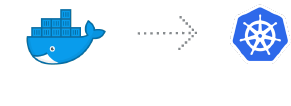
MiCADO core moves to Kubernetes
The latest version of MiCADO was presented on the project meeting in Corfu, Greece, MiCADO is an autoscaling framework extension for Kubernetes deployments in the cloud, download the latest version of MiCADO at GitHub & learn more about it on Read the Docs.
Support for multiple, independent sets of virtual machines in a single application deployment
Formerly MiCADO Core ran in static Docker containers, in the latest release version 0.7.3, MiCADO Core run in orchestrated Kubernetes Pods. Kubernetes allows to reschedule dead pods, improve the control of worker node resources, close unnecessary open ports and a better master-worker communication.
In version 0.7.2 only one set of worker nodes can be defined and all containers run on the defined worker VMs (nodes), in contrast version 0.7.3 supports the set up of many"node sets" and allows to define them individually, it provides the opportunity to run container on specific/different VMs.
Improved stability, error handling, logging, resource usage and ADT validation
Worker Node Sets
"Node sets" can be provided as static and scalable sets, every set can be defined with different properties and each one reports individual metrics. Node set specific metrics can be queried in Prometheus and filtered in Grafana.


Support for fast deployment of master and workers based on prepared images
The Ansible Playbook supports the user installing MiCADOscale and providing it the required credentials, by adding separate roles to the Ansible Playbook it improves the overview for users as well as MiCADO master and worker nodes are able to work and scale faster.
Download MiCADOscale, deploy it, rate it!
Our developer are constantly developing MiCADOscale - Read more about the latest release or visit MiCADO homepage for general information about the software - download the software, deploy it and give us feedback!
How to reach us?
Start the dialogue, call us, or send us a mail to micado@cloudsme.eu. We are happy to hear from you!

